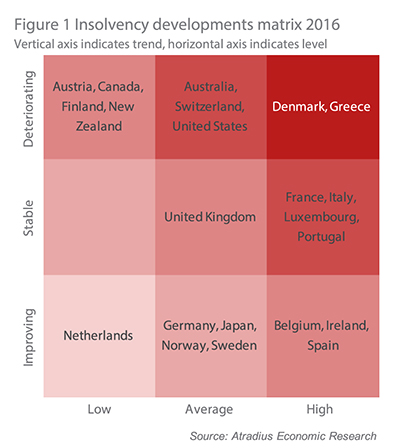EXTRA >> THE ANGER of small business directed at the behaviour of their lenders – particularly Australia’s biggest banks – is coming home to roost in a series of successful litigations by the Australian Securities and Investment Commission (ASIC) and the Australian Competition and Consumer Commission (ACCC).
Yet for the businesses that have hit the wall since 2007 as a result of what has been called ‘predatory’ banking behaviour, and the families that have lost property, assets and life savings, it is a ‘too-late’ result that has taken a lamentable amount of time through existing channels. 
There is a cry gaining momentum – with some calling for a Royal Commission – from small business for fundamental change in banking behaviour and culture. Underpinning that call is the mood that even though the Australian public effectively secured the major banks through the Global Financial Crisis (GFC) with government guarantees, the big banks have taken advantage by buying out struggling financial organisations, integrating financial advice and insurance sales, and driving successive years of record profit at the expense of customer value.
While most of the larger fines and compensation agreements so far – such as the Commonwealth Bank of Australia’s (CBA) $80 million in refund packages to 216,000 of its Wealth Package customers for failures in applying fee waivers and interest concessions – are designed to make amends for poor practices during the GFC, many small business leaders claim the compensations and fines are menial compared with the damage still being done to Australian small-to-medium enterprises (SMEs).
With the big four banks combined declaring profits of more than A$30 billion combined last financial year – and growing – it is a serious argument compared with the results of ASIC and ACCC judgements so far.
CBA’s Wealth Package and Mortgage Advance Package offered concessions and benefits to customers including interest rate discounts and fee waivers for home loans, credit cards and certain loans and insurance. CBA overlooked supplying these benefits, which relied on manual staff inputs, and to the bank’s credit it owned up ahead of a potential ASIC whistleblower investigation. The bank insists the systems are now properly in place and the damage since 2008, about $80 million, has been compensated to affected customers.
That result is a good one – it’s how things should work in the banking sector when anomalies are discovered – compared with others that have come through ASIC and ACCC recently, and potentially others in the works.
Perhaps the worst behaviour so far has been the alleged manipulation of bank bill swap reference rates (BBSW), for which Westpac and ANZ have so far been accused by ASIC and taken to court.
ASIC recently started legal proceedings in the Federal Court in Melbourne against Westpac Banking Corporation for “unconscionable conduct and market manipulation in relation to Westpac's involvement in setting the bank bill swap reference rate in the period from April 6, 2010 and June 6, 2012.
ASIC reported the method by which the BBSW, the primary interest rate benchmark used in Australian financial markets administered by the Australian Financial Markets Association (AFMA), was calculated changed on September 27, 2013. ASIC’s charges against Westpac relate to conduct before that change.
ASIOC alleges Westpac traded in a manner intended to create an artificial price for bank bills on 16 occasions during the period under review.
ASIC alleges that on these days Westpac had a large number of products which were priced or valued off BBSW and that it traded in the bank bill market with the intention of moving the BBSW higher or lower. ASIC alleges Westpac was seeking to maximise its profit or minimise its loss to the detriment of those holding opposite positions to Westpac's.
Further, ASIC has sought from the court pecuniary penalties against Westpac and an order requiring Westpac to implement a compliance program.
Earlier this year, ASIC launched action against ANZ Banking Group for allegedly rigging the BBSW on 44 days.
ASIC alleged in the Federal Court in Melbourne that ANZ also engaged in “unconscionable conduct and market manipulation” in relation to setting the BBSW from March 9, 2010 to May 25, 2012.
It is alleged that ANZ traded in a manner intended to create an artificial price for bank bills on 44 separate days during the period.
Like the Westpac case, ASIC is seeking declarations that ANZ contravened s.12CA, s.12CB and the former s.12CC of the Australian Securities and Investments Commission Act 2001 (Cth), s.1041A of the Corporations Act 2001(Cth) (Corporations Act), and s.912A of the Corporations Act, and wants pecuniary penalties against ANZ and an order requiring ANZ to implement a compliance program.
Prior to the ANZ and Westpac actions, ASIC investigated BBSW misconduct by UBS-AG, BNP Paribas and the Royal Bank of Scotland. ASIC accepted enforceable undertakings from those banks and those institutions also made voluntary contributions totalling $3.6 million to fund independent financial literacy projects in Australia.
ANZ is also being forced by ASIC to refund $5 million to 25,000 basic account holders for incorrect late payment and overlimit fees
ANZ admitted it failed to properly apply some fee reductions and fee waivers for customers who held an ANZ Access Basic account and who also held an ANZ consumer credit card or ANZ Everyday Visa Debit Card since 2007.
Similar to Westpac’s issue, the ANZ failure arose as a result of breakdowns in the interaction between automated and manual processes, and in particular, the lack of reliability of some manual processes and controls. ANZ said it has since implemented a permanent automated solution with a system-based automated waiver, eliminating the need for manual intervention.
An Access Basic account is available to customers that meet certain criteria which include holding a Seniors Concession card, Pensioner Concession card, Centrelink Health Care card or a Repatriation Health card.
ASIC Deputy Chairman Peter Kell said, “ANZ’s Access Basic account is specifically designed for low income consumers who are unable to pay high fees. This matter highlights the importance of appropriately managing manual processes to apply fee waivers and discounts, and designing and maintaining robust systems to support such features.”
ANZ announced it intended to complete the remediation process by the end of April 2016.
Westpac has also agreed to pay out $1 million over four years to support financial counselling and literacy programs after ASIC pinged the bank for poor credit card limit increase practices.
ASIC was concerned Westpac failed to make reasonable inquiries about some consumers' income and employment status before increasing their credit card limit. In particular, ASIC was concerned that Westpac, in relying largely on its automated processes, was not making reasonable inquiries of individual cardholders, which is not consistent with the responsible lending obligations under by the National Consumer Credit Protection Act 2009 (the National Credit Act).
Westpac has committed to a number of steps to address ASIC’s concerns, including changing its credit limit increase processes; a remediation program involving a review of credit limit increases previously provided; and engaging an independent external expert to provide assurance of the effectiveness of the remediation program.
The recent ASIC action comes in the wake of moves against other financial institutions.
Bank of Queensland Limited improved its lending practices following ASIC’s concerns about the way it assessed applications for home loans. The Cash Store Pty Ltd and Assistive Finance Australia Pty Ltd failed to comply with their responsible lending obligations and the Federal Court awarded record civil penalties of $18.975 million.
Wide Bay Australia Ltd, now Auswide Bank Ltd, made changes to its responsible lending policy as a result of ASIC’s intervention. ASIC has also tackled issues around interest-only home loans, releasing a special report to help credit licensees improve their lending practices by increasing their awareness of their obligations.
Compensation to customers of $4.5 million was part of the outcome from an ASIC-ordered independent review of ANZ’s OnePath branded companies.
ASIC said the ANZ Group self-reported the braches in relation to its life, general insurance, superannuation and funds management activities, which are operated through its wholly-owned OnePath group of subsidiary companies.
From early 2013 to mid-2015, around 1.3 million customers were affected by breaches, requiring refunds and compensation of around $4.5 million, rectifications and other remediation of approximately $49 million. Not all breaches required monetary remediation.
For example, 1,422 superannuation fund members had $28.7 million in contributions allocated to the incorrect super account of the member for a period up to 12 months. ANZ has now returned these funds to the correct accounts and provided more than $400,000 compensation for lost earnings and/or incorrect fees.
www.asic.gov.au
ends








